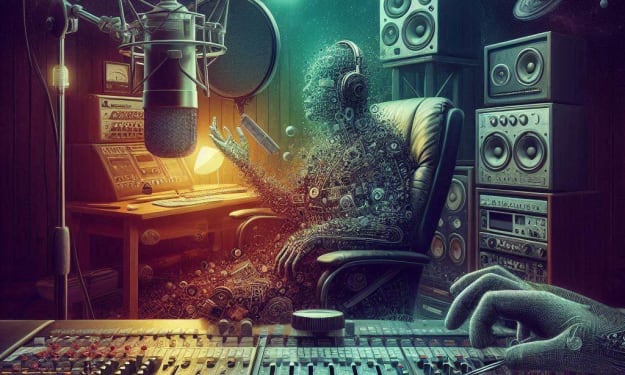
We need to get something straight. Evolution by natural selection is a theory. So is climate change. But people keep saying that like it’s a bad thing I get it, I understand your frustration. We’re all searching for ultimate hashtag #truth, and complex, challenging ideas don’t always fit nice and neatly in our brains. But what is truth? Are there different levels of truth? Are some truths further than others? I don’t know. But I do know this: Science is the absolute best tool we have for understanding how the universe works, and theory is not a 4-letter word. If we’re going to trust science together, the least we can do is speak the same language. Words like “fact” “theory” “hypothesis” and “law” mean something totally different to a scientist than the way they're used in everyday speech, so let’s get them straight. Facts are really just observations about the world around us. And we observe things every day, like that it’s bright outside when I look out the window, and we often develop explanations for those observations , like “okay, the sun is probably up” Congrats! We just developed a hypothesis! But a hypothesis isn’t something you prove, it is something you test. So… let’s walk outside! It’s bright, the sun is up, hypothesis confirmed! Way to go! We did a science! We often come up with multiple hypotheses to explain an observation, we just eliminate the ones that are wrong. What’s left over is not a theory or a law or an "Ultimate Truth", it’s just a possible explanation for something, one that can lead us to new hypotheses, which may agree or disagree with the original one. It’s a never-ending story… only without the big fluffy dragons. "That's so good!" When enough hypotheses have gotten the ol’ scientific check mark, we can pile these all up and turn them into something greater: a theory. A theory is the way we know something works, based on the evidence we’ve collected and all the hypotheses that we’ve successfully put to the test. The best thing about a theory is that we can use it to make predictions, and not just about the way things are, but how they will be. You may have heard someone say something like, “I have a theory about why cats purr, I think it’s because they’re actually tiny robots, and those are their gears” Well that’s not a theory. That's actually a hypothesis, it’s something that could be tested. This cycle, taking facts and observations, thinking up possible explanations, testing those explanations, and then making predictions based upon them… that’s what this whole science thing is about! Being a theory isn’t a bad thing, it means that idea got the gold star, the blue ribbon, a big shiny trophy that says “Countless experiments have shown that I'm sufficient to explain all the observations that I encompass" To see if you’ve got this down, let’s look at some examples. FACT: People get sick. I think we can all accept that. HYPOTHESIS: People get sick because something gets in their body and starts doing bad things. Test each hypothesis, throw out the bad ones, and we’re left with a framework that lets us understand why we get sick and make predictions, the Germ Theory of Disease. Let’s try another! "Evolution" is a fact. We know that it happens, no doubt. But how does it happen? "Evolution by natural selection" is a theory. We’ve come up with thousands and thousands of hypotheses about it, tested them, thrown out the bad ones, and we’ve developed a pretty darn good framework for predicting how living things change over time. So yeah it’s a theory. Stop saying it like a bad thing. Calling it a theory means it’s passed the toughest tests that we can throw at it, and evolution has been tested maybe more than any other theory we know of. We should really call it the Theory of (The Fact of) Evolution What about something as fundamental as gravity? Is that a theory? Or is it… a law? In science, a law is a detailed description, usually using math, of how something happens, like the movement of gas molecules related to temperature, or how mass and energy are always conserved. But a law doesn't tell us why it happens. Gravity, it turns out, is a law and a theory. Newton’s Law of Universal Gravitation describes precisely how two objects will attract each other based on their masses and the distance between them, and gives us a nice formula we can use to figure it out. Textbook “law”. But Newton's equation doesn’t describe what is happening, or why. To do that, we need a theory of Gravity. FACT: If I drop this, it’ll fall. LAW: I can mathematically describe how fast that apple and Earth will accelerate toward one another based on their masses and distance. But why is it happening? HYPOTHESIS: There is a force pulling on the apple, or maybe there’s something about the way the universe is structured that makes massive things fall toward one another, or maybe the apple is, like, magnetically attracted to Earth or something? Eliminate the bad ones, and we’re left with a theory. Thanks to Einstein, we’ve got a Theory of Gravity… called General Relativity. But once scientists stumbled upon quantum mechanics, they began to realize that Einstein’s Relativity didn’t account for what was happening on the very smallest gravitational scales of the universe. General Relativity is still great at describing the universe at the scale that we interact with it, but even the Theory of Gravity is incomplete. Does that mean we throw it out because it can’t explain everything? No! If you get a flat tire on your car, do you get a new car? If you change the tire, is your car a different car all of a sudden? All of these fit together to make the scientific machine. We’re constantly adding and taking away parts, but it keeps on running just fine. It just means we’ve got more work to do to make Einstein's theory even more right. Science is never done. It is always changing, and this bothers some people. How can we trust it, how can something be strong and robust if it could be different tomorrow? The goal of science is to devise frameworks that describe how things work, to truly understand why things are the way they are right now, so we can know how things will be in the future. And if we can all learn to trust science, in all its fuzziness and incompleteness, I predict that future is going to be very bright. I like that theory.
About the Creator
Enjoyed the story? Support the Creator.
Subscribe for free to receive all their stories in your feed. You could also pledge your support or give them a one-off tip, letting them know you appreciate their work.






Comments
There are no comments for this story
Be the first to respond and start the conversation.